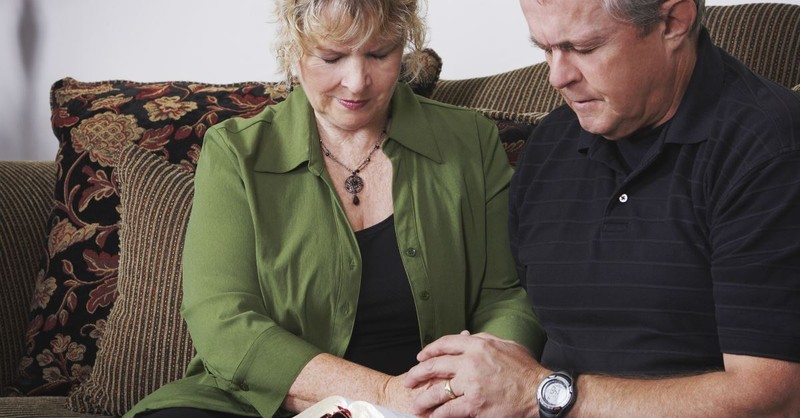
If you have grandkids you know how hard it is to not be too pushy with your opinions or “great ideas” to be helpful. You know what I’m talking about: The baby has croup. It sounds horrible. You’ve been there many times when your kids were little. You know that sitting with the baby near a steaming shower will do wonders, but your kids insist on researching on the internet, or taking him to the emergency room. What do you do? Do you speak up? Tell them not to go to the hospital? No? I mean, what if the cough is more serious and needs immediate medical attention?
You get the picture. And I’m sure you're nodding your head in agreement if you’ve ever been in this situation. Or, maybe the circumstance is not a health issue. Maybe it’s a suggestion you’d like to make about potty training, discipline, education, or money saving tips. Being “helpful” is not always helpful––as my husband often reminds me.
Whether you’re new at this grandparenting gig, or you’ve been at it for years, I’m sure you’d agree there’s a balance we must find between supporting versus controlling our adult children.
(In the case that you are a grandparent who is actually the primary caretaker for your grandchild or grandchildren, you are not alone—however, the insights in this article will not as likely speak to your situation. Know that my heart goes out to you. I pray God grants you His strength and wisdom as you take on this role!)
With all this in mind, let’s visit 10 ways grandparents can support their children while still letting them lead their families.

1. Honor the parents.
Let’s say your daughter-in-law is correcting your grandson for taking a cookie without asking. You saw the whole thing go down. You know the right thing to do is to guide that child toward honesty. Sneaking a cookie when not allowed is deceptive and wrong.
But he’s got the cutest little chocolate covered grin. So, you speak up and tell your daughter-in-law, “Oh it’s ok. He didn’t mean to be deceptive. I think you should let this one go.” Boom! In a moment, you become little Johnny’s hero and Mommy becomes the villain. Your grandson flings himself into your arms, while your daughter-in-law shoots a look that lets you know you’ve overstepped.
While it’s easy to think It’s no big deal, you’ve actually created a difficult situation for your kids. Later, your son and daughter-in-law’s conversation may go something like this: “Honey, your mom did it again. I know she means well, but she regularly dishonors my authority in front of the kids.” Husband’s response: “Oh man. I know she doesn’t mean to cause trouble. She just loves the kids so much. I hate to bring it up. It’ll hurt her feelings. Maybe you can just redirect her next time and she’ll get the hint?”
With that, your daughter-in-law storms out of the room feeling as though her husband just chose his mother’s feelings over hers. Get the picture? Wisely choosing to honor your grandkids’ parents will bless your relationships and bring unity to your family––rather than discord.
Photo Credit: ©GettyImages/monkeybusinessimages

2. Don’t usurp their authority.
Maybe you’re thinking My children are too lenient with their kids. I wish they’d step up and show some authority. In that case, you may be tempted to take it upon yourself to tow the mark of discipline with your grandkids and not let them get away with anything, ever.
Again, consider how your actions will make your adult children feel undermined by you, or unwelcome in your home. And while they may need to learn better parenting skills, usurping their authority to bring down the hammer will likely serve to drive a wedge between you, your children––and your grandchildren.
At times when my grandkids attempt to sway me, I’ll say, “Nana has to obey Mommy and Daddy too.” When I am babysitting them, if they do something that requires discipline, I’ll sit them down and let them know that Mommy and Daddy make the rules and I must enforce them. Somehow my grandkids knowing that even Grandma submits to their parents seems to make Mommy and Daddy’s authority even more influential.

3. Speak words of life.
Parenting guilt is a real thing. Parents beat themselves up enough when they lose their temper or drop the ball. Even when your kids are doing their best as parents, they’re going to blow it––just like we did. But if you think you can save them heartache by regularly pointing out their mistakes, you’re sadly mistaken. Your practice of acknowledging errors will likely cause them to avoid asking you for advice.
Proverbs 18:21 (NKJV) says, “Death and life are in the power of the tongue…” Resolving to speak uplifting words to your children will encourage them. As a mom, I recall how I truly felt clueless to handle a screaming toddler––or a hormonal teen. Hearing encouraging words from my parents and in-laws really did build me up and inspire me to parent well. And, it made me more open to their counsel.
Photo Credit: ©Getty/Halfpoint

4. Prayerfully consider when to give your opinion.
With all your years, you’ve discovered a thing or two about parenting. Some insights you’ve learned from your mistakes, others from what you did well, what you’ve read or observed. And God values your wisdom. So much so that He calls the older women to teach the younger how to love their children (see Titus 2).
But sometimes, your kids are going to be more receptive to advice from a non-emotionally involved third party––a mentor. Sometimes, parents are just too close to the situation to be the one to regularly parenting advice. So pray for God to send mentors to help your kids parent well.
And then consider prayerfully when and how you chime in with your helpful hints. Proverbs 25:11 gives this beautiful picture to consider: “A word fitly spoken is like apples of gold in a setting of silver” (ESV). Ask God to help you deliver words fitly spoken in matters of parenting and life.
Photo credit: ©GettyImages/aldomurillo

5. Wait until they ask you for advice.
Timing is everything. At times you just need to hold your tongue until your kids ask for help. In matters of finances, parenting, etc., you’d do well to discern when your advice is welcome, and when it’s not. Constantly giving your opinion can feel manipulative, controlling or undermining to your children–– or their spouses, who may feel insulted by your comments.
Sometimes letting our kids make their own mistakes is the best way they’ll learn. When you attempt to rescue them at every turn by offering them “a better way of doing things,” it often backfires and becomes a point of contention.
This doesn’t mean you cannot share wise counsel through meaningful conversations when they’re open to hearing it. Be ready to offer wisdom by equipping yourself through Bible study and prayer. And then demonstrate to them wisdom by how you live your own godly life. It is God’s word that transforms lives––not your opinions (see Romans 12).
Related Resource: The 7 Biggest Reasons Gen Z is Leaving the Faith
Studies show that a majority of kids raised in Christian homes are leaving the faith when they leave the nest. It is vital that we understand the primary reasons why young people no longer believe if we want to help them return to the faith. Catherine offers some helpful resources to consult if a child you know has embraced one of these false claims about Christianity, and she and Laurie also offer some helpful resources for discipling younger kids in the faith. If this episode helps you be a more thoughtful parent or grandparent, be sure to subscribe to Christian Parent, Crazy World on Apple or Spotify so you never miss an episode!
Photo Credit: ©GettyImages/asiseeit

6. Invite your kids to tell you when you’re overstepping.
I know for a fact that as a grandmother of 10 there are times I overstep. It is the hardest thing to take my own advice. I’m preaching to myself in this article friends! But from the bottom of my heart I don’t want to be that grandparent who my kids have to tolerate. And since you’re reading this article, I’m betting you don’t want to be either.
I truly desire to be a help to them. So, I make every effort to watch the grandkids while their parents have a date night. And I try to ask their parents if it’s ok before I let them watch too many movies, play a game on my phone or give them sweets––unlike their grandfather who basically disregards their no-sugar-cereal policy whenever we watch the kids overnight. (Insert winking emoji here!)
While my kids are gracious when I let them down, I’ve asked them to please tell me whenever I overstep my boundaries as a grandmother. If I’m pushing too hard with my “words of wisdom” my daughters give me a certain look that lets me know We’ve got this, Mom. And more than once I’ve watched my sons-in-law take the reins to say they won’t be taking my advice.
Don’t become offended at their resistance. Rather, you would do well to ask your kids to help you not overstep by kindly telling you when you do. With my zeal to be helpful, I’m still growing in this process. But letting my kids know, that with their help, I’m making the effort seems to invite grace on their part.

7. Love their spouse.
In over 30 years of ministry, we’ve watched parents do harm to their family when they won’t love their child’s spouse. Whether motivated by a sense of competition or personality differences, if your child knows you don’t love their spouse it’s not going to go well for you.
Mothers who compete with their daughter-in-law for their son’s attention are putting their sons in a difficult situation, and they will either sow discord in their kids’ marriage or find themselves alienated altogether.
Loving an unlovable person is difficult. But with God’s help, it’s possible. When Jesus gives you His love for difficult people, Christ’s light shines brightest. James 4:2 says, “...You do not have because you do not ask,” so ask God to give you His unconditional love for your child’s spouse.
Photo Credit: ©GettyImages/izkes

8. Be forgiving.
In my book Moms Raising Sons to Be Men, there’s a section entitled Forgiving People Raise Forgiving People. If you hold grudges, don’t be surprised if you have raised kids who do too. Asking your kids to forgive you when you’ve offended them, and then choosing to forgive them, will instill a sense of trust between you, your kids and your grandkids.
Let forgiveness be a common practice in your life. You’re never more like Jesus than when you lovingly forgive others––even when you don’t think they deserve it. When your life reflects this type of forgiveness it will draw your children to you because they can trust your forgiving tendencies. And if your kids aren't Christians, it may be what God uses to draw them to Christ.
Photo Credit: ©Getty Images/Lisa5201

9. Don’t find your worth in how your kids treat you.
It’s a difficult transition once your kids are grown––believe me, I know. As your children move on it’s easy to feel left behind or forgotten. Especially when your kids are busy with their own families.
When you find your worth in your relationship with God, who loves you so much He sent His Son to purchase you for His treasure, you’ll be on the right track to realizing your worth. Asking anyone else to be the source of your self-esteem is idolatry.
When you look to others to find your value it’s asking them to give you what only God can give. The more you grow your love for Christ, the less you’ll expect others to make you feel valuable. And then His love will enable you to cover with love when others let you down.
Photo Credit: ©Unsplash/Matt Botsford

10. Support them from your knees.
At this time in history, there’s no room for mediocre Christianity. Your kids are raising their children in a culture that looks nothing like what we raised ours in. The moral and social issues they face are Satan’s attempt to steal, kill and destroy our children’s very souls (see Ephesians 6:12).
As Moses interceded on the mountaintop for Joshua’s battle against his foes, let your family know you’re standing with them––on your knees. Pray for their salvation, for wisdom, for their purity, and for their future spouses. Resolve to support them through prayer and never waiver. I’m certain you won’t regret it.
Photo Credit: ©GettyImages/Kristy Anne Glubish Design Pics
Rhonda Stoppeis the NO REGRETS WOMAN. With more than 30 years experience of helping women build no regrets lives. I could have listened to Rhonda talk all night, is what women say about Rhonda’s enthusiastic, humorous, transparent teaching, and zeal as an evangelist.
She’s committed to fulfill the Titus 2:4 commission by mentoring, teaching and writing books that are inspiring, grounded in Scripture and easy to read––like you're visiting with a friend over coffee.
Rhondais the author of 6 booksand appears on numerous radio programs including: Focus on the Family, Family Life Today and Dr. James Dobson’s FamilyTalk, & hosts The No Regrets Hour.She’s an evangelist and speaker at women’s events, College Women’s Chapel, Pastor’s Wives Conferences, MOPs and Homeschool Conventions. Sharing the gospel at her NoRegretsWoman Conferenceis her sweet spot. Rhonda is a regular contributor for Crosswalk and many other magazines.
Rhonda ministers alongside her husband Steve, who for 20 years has pastored First Baptist Church of Patterson, California. They live out their own Real Life Romance writing books and speaking at their No Regrets Marriage Conferences, but their favorite ministry is their family. They have four grown children and 10 grandchildren. To learn more about Rhonda’s speaking topics, watch her teaching and to book Rhonda for your next event visit: NoRegretsWoman.com
Originally published Sunday, 26 November 2023.








